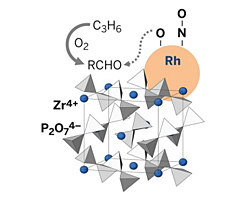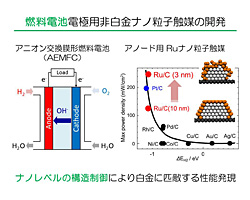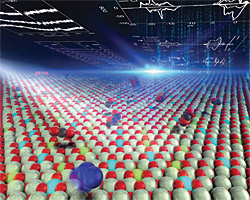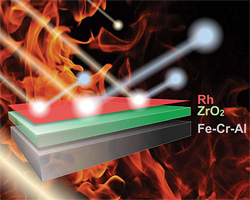HOME > Research
Minimization of noble metal on automotive catalyst
Large amount of platinum-group metals (PGMs) such as Pd, Rh and Pt is contained in a three-way catalyst (TWC), which is indispensable for emission control, and the scarcity of those precious metals is being concerned. Our strategy is based on the development of new support materials to maximize the catalytic performance of PGMs, contributing to the development of new TWC with much lower PGM loadings compared with the conventional.

Development of base metal catalysts for alternative PGM catalyst
Noble metals are widely used for various industrial catalysts, although they have scarce resources. Development of alternative catalytic elements has therefore gained a wide attention. We control the surface structure of materials using cheap and abundant base metals such as Fe, Ni, Cu, etc. to synthesize highly active catalysts that can replace conventional noble metal catalysts.
Development of metal nanolayer catalyst
Generally, the formation of metal nanoparticles enhances the catalytic activity, whereas low thermal tolerance is one of main problems. We develop the metal nanolayer catalyst on a thin stainless-steel foil using a pulsed arc-plasma deposition technique to prepare new and noble heterogeneous catalyst with high activity and thermal stability.
Development of electrocatalyst for anion exchange membrane fuel cells
Although proton exchange membrane fuel cells are attracting technologies for the next generation energy society, expensive noble metals such as Pt are used for electrode because of their high corrosion resistance. In contrast, anion exchange membrane fuel cells have an advantage due to its low corrosiveness inside the electrodes. Therefore, we develop new electrode materials by nano-sizing of catalyst metals and/or structural controlling.

Catalytic conversion of methane to value-added chemicals
Methane is one of main components of natural gas, and in recent years, its effective use is desired as an abundant carbon resource such as methane hydrate and shale gas. We develop a highly active catalysts and new reaction systems that activate methane and achieve chemical transformation to value-added chemicals.









